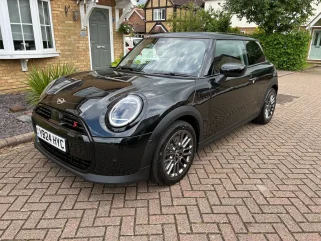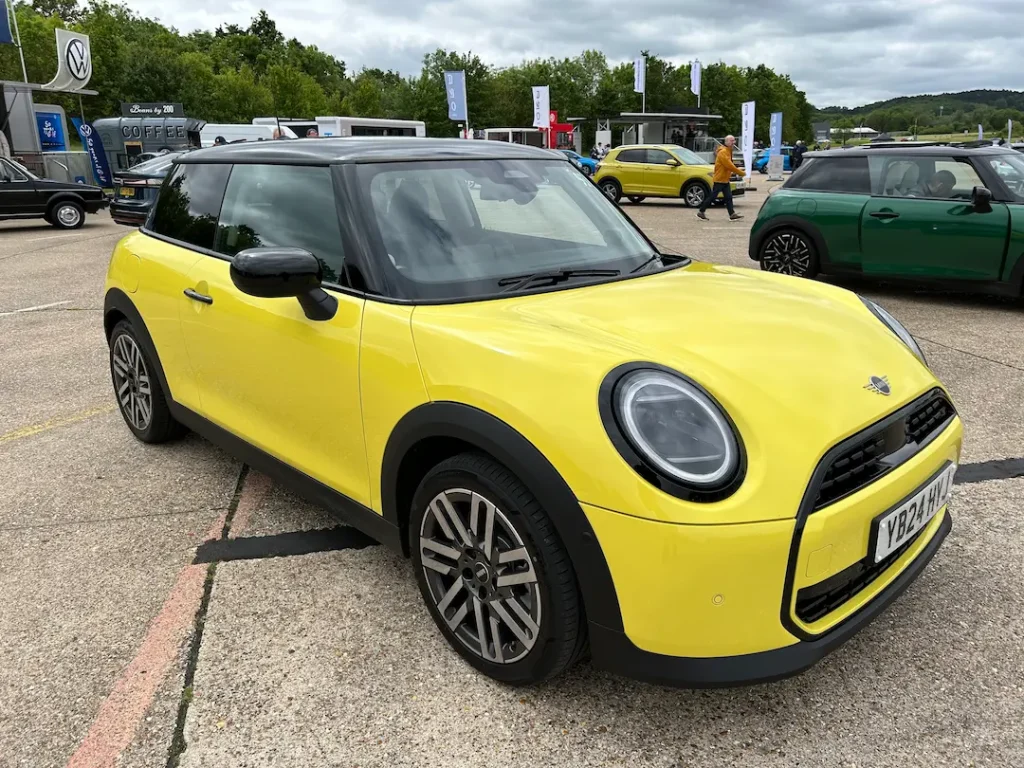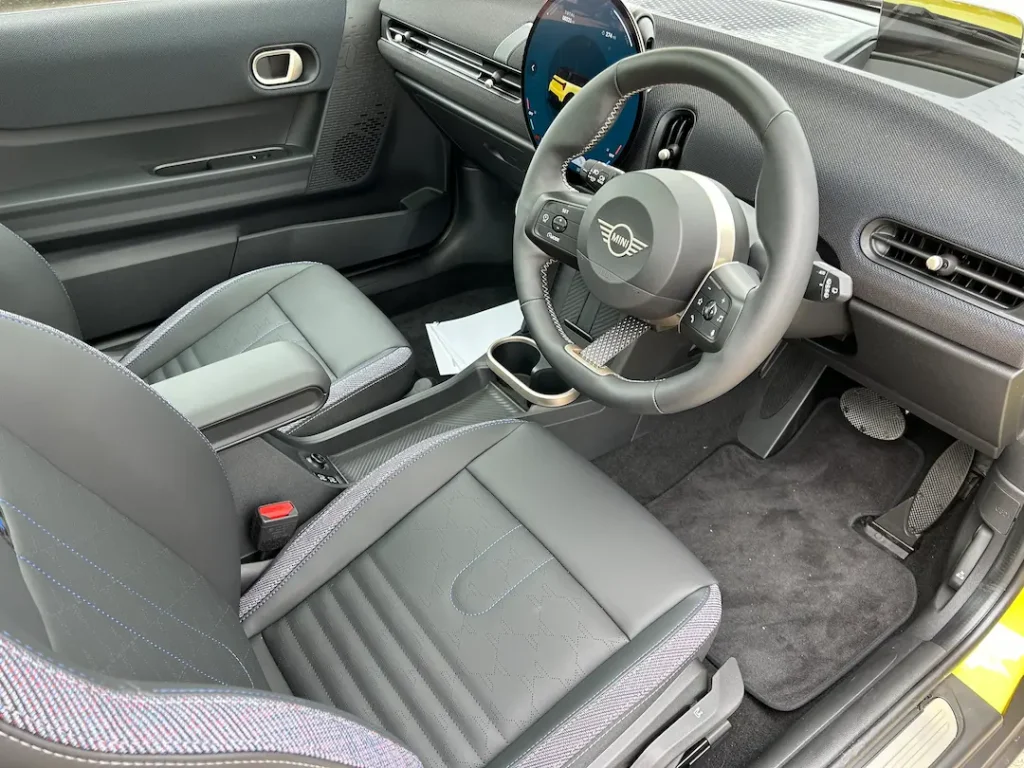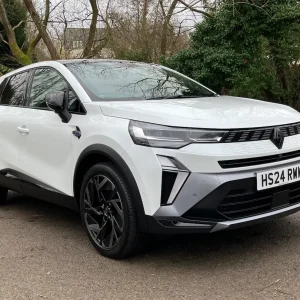
Whereas the all-electric Mini Cooper SE is an all-new model that’s manufactured in China, the ICE-powered Cooper and Cooper S models are in fact heavily made-over versions of the third-generation F56 hatch.
Outside, the Cooper is the second Mini to debut the new family look, dubbed ‘Charismatic Simplicity,’ which basically equals a simpler, and cleaner design, without any chrome trim.
The Cooper’s basic shape is unchanged from the previous hatch, but changes at the front include the octagonal front grille, new bumper, and headlight design. The side profile is a lot cleaner, with the removal of the scuttles and repeaters at the front, and there are also chunkier, squarer mirrors. The biggest change is at the back, with customisable triangular LED light clusters. Overall, the latest model could still only be a Mini, but apart from the badging, and the John Cooper Works body kit on ‘Sport’ models, there are no distinguishing features between the Cooper (pictured in yellow) and faster Cooper S (pictured in black), which disappoints.

Interior focus
The interior, it seems, is where Mini has spent more time. Like with the Countryman we’ve driven previously, it is heavily influenced by the original Classic Mini. Additionally, to the woollen-trimmed dashboard, you won’t miss the circular OLED display, running Android-based Mini Operating System 9. All the functions of the car can be operated by touch or voice control. In use, there’s a lot going on in a circular screen with a diameter of 240mm. However, it is quite logical to use, and impressively fast in its operation. We’d recommend choosing the head-up display, from Level 2 versions upwards, which brings key information closer to the driver.
Below this, there’s the Classic Mini-influenced toggle bar, which is home to the key driving functions, such as the parking brake, gear selector, and the start/stop key – which you twist, in a novel touch harking back to the original.
Elsewhere, there is plenty of attractive fabric trim, and comfortable supportive front seats – even if you don’t go for the sportier S (the Cooper is pictured). Rear seat and boot space are both best described as tight. Overall, the interior feels special, and something new – not just a BMW clone, although the commonality is obvious, in terms of items such as the switchgear.

Under the bonnet
The Cooper hatch range starts with the C, which is powered by a revised version of the 1.5-litre, three-cylinder, Twin Power turbo petrol engine, with 154hp. It is capable of a 0-62mph acceleration time of 7.7 seconds, has a top speed of 134 mph and a tax liability of 32%. The other Cooper hatch we’ve driven is the sportiest S, whose 2.0-litre Twin Power turbo petrol engine produces 201hp, 0-62 acceleration in 6.6 seconds, and a tax liability of 33% – this model is less likely to have fleet interest. Both are only available with seven-speed automatic transmission.
The Cooper and Cooper S are both great fun to drive. The light, but direct and precise feel to the steering impresses first. This works well with the tidy, sharp handling. The Cooper hatch generally rides firmly, but varies according to wheel size, and the biggest 17 and 18in wheels give the most unsettled ride around town. This Mini feels more sophisticated to drive than the outgoing car.
Performance-wise, the C feels more willing than you would expect – the seven-speed automatic gearbox mated with the engine is slick and responsive. It feels at its most dynamic in ‘Go Kart,’ which is one of eight drive modes. The Cooper S, on the other hand, always felt fast, although we weren’t so keen on the piped engine sound, in ‘Go Kart’ mode.
The Cooper must be the most stylish and well-resolved Mini hatch yet, but it’s not a cheap option, with the rear seat and boot space remaining compromised.
Positive: Simplified but attractive exterior styling, interior infotainment, stylish and quality interior, fun to drive.
Negative: Firm ride might not suit all, compromised rear and boot space, head up display not standard, not a cheap choice, lack of differentiation between Cooper and Cooper S models.
Standard equipment: LED head and tail lights, gloss black roof rails, 16in alloy wheels, Mini OLED display, DAB radio, Mini Driving Modes, two-zone automatic climate control, dynamic cruise control, parking assistant and rear camera, Apple Carplay and Android Auto integration.
Engines: Petrol: 154hp 1.5, 201hp 2.0
Equipment grades: C, S
Transmissions: Seven-speed automatic
| Model | Mini Cooper 1.5 C Exclusive (Level 2) |
| P11D | £29,025 |
| Residual value | 53% |
| Depreciation | £13,450 |
| Fuel | £8,102 |
| Service, maintenance and repair | £1,954 |
| Cost per mile | 42.51p |
| Fuel consumption | 47.1mpg |
| CO2 (BIK%) | 135 g/km (32%) |
| BIK 20/40% a month | £154/£309 |
| Luggage capacity | 210 litres |
| Engine size/power | 1,499cc/154hp |
| Score | 8/10 |





